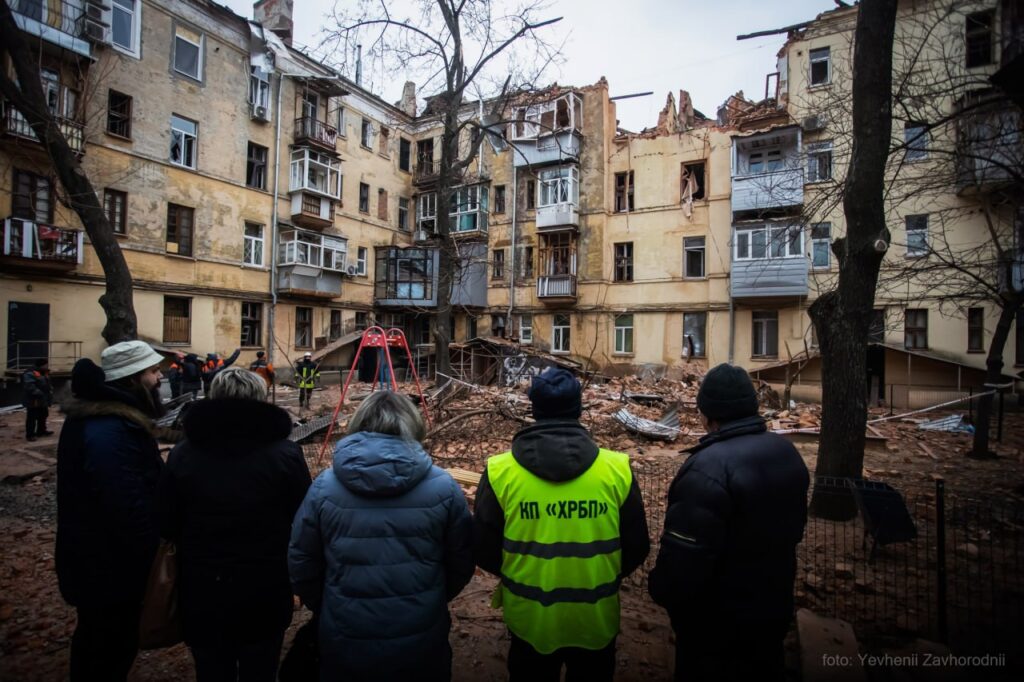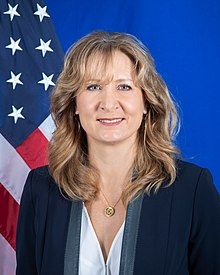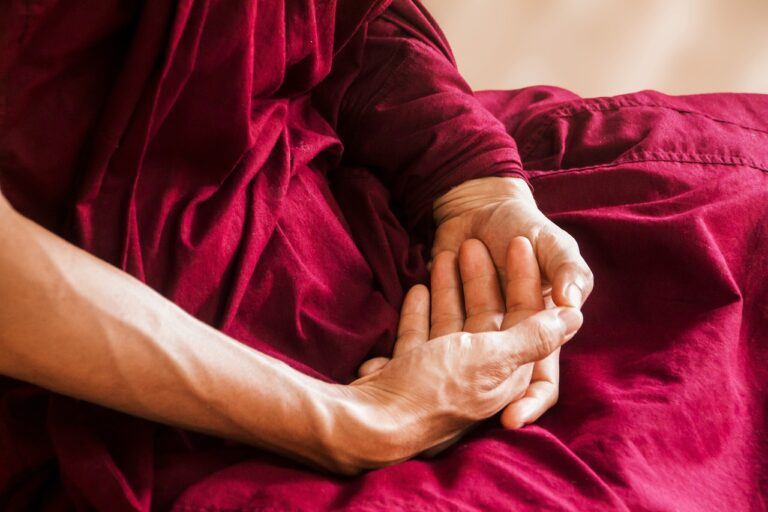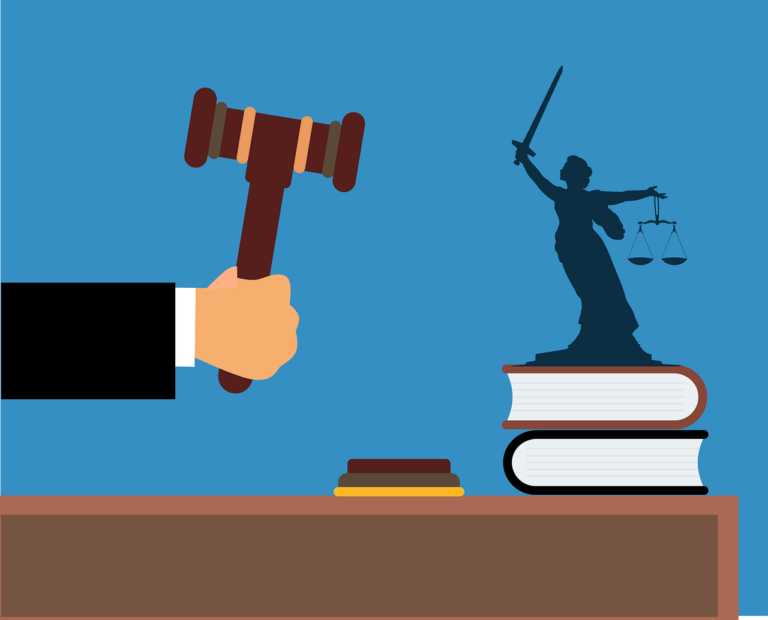
Russian troops fired missiles at the residential building in Kharkiv on January 30, 2023. An older woman was killed, and three more people were injured. Photo by Yevhenii Zavhorodnii. Source: MFA Ukraine
Washington: Russia’s aggression against Ukraine is a manifest violation of the United Nations Charter, and many of the acts in Ukraine constitute war crimes and crimes against humanity.
The Conflict Observatory, which has been funded by the US State Department but it’s an independent entity based at Yale University, has recently put out a number of reports using open-source investigations to identify different types of violations of international law. And the most recent report focused on children and the extent to which Russia’s officials have separated children from their parents and have moved them into and potentially engaged in fraudulent adoption processes within Russia.
And as Russia continues to violate international law, it’s incredibly important that the international community stay focused and united around the imperative of justice.
Winning the war is more than just winning on the battlefield; it also means winning the fight for justice. There are three pathways that are currently operative and are starting to investigate war crimes and other atrocities being committed in Ukraine. This includes Ukraine’s domestic courts, and the prosecutor general has recorded over 70,000 incidents of potential war crimes and other atrocities. The European Union, the United Kingdom, and the United States are supporting the work of the Ukrainian prosecutor general in a project called the Atrocity Crimes Advisory Group. This involves sending experts to the field to work side by side with Ukrainian counterparts.
The second pathway to justice is the International Criminal Court, which is seized of jurisdiction because Ukraine has consented to its operation. And then finally, we have seen courts around the world opening investigations of war crimes and other atrocities in Ukraine under principles of extraterritorial jurisdiction, and European prosecutors are particularly interconnected. They have formed a joint investigative team, and they are working under the umbrella of the Eurojust/Genocide Network. So all of these pathways to justice have been activated.
The primary obstacle [in each of the pathways to justice] really is one of custody of the accused. Many courts do require custody in order to launch a full-scale adversarial prosecution. The International Criminal Court, for example, cannot proceed in absentia.
Now, that said, there are a number of preliminary steps that many courts can take. So for example, the International Criminal Court can issue arrest warrants. Those arrest warrants can be shared with Interpol and can be made then global. They can also – the International Criminal Court can also accept evidence and hear witness testimony in order to preserve that testimony and ultimately can confirm charges against individuals. So these are some preliminary steps that the ICC can take even without custody of the accused.
Some domestic courts are able to exercise in absentia jurisdiction, and that includes actually Ukrainian courts. Their legal system allows that. And so they have had a few cases that have gone forward. When they’ve been able to identify a perpetrator, they’ve given notice to that perpetrator that charges have been brought. The perpetrator, of course, has not appeared to defend those charges, and so Ukrainian courts have proceeded against those individuals in absentia.
Of course, it will be more and more difficult to go up the chain of command. Ukraine has custody over some prisoners of war and can proceed against those individuals in its courts. But getting up the chain of command to the architects of violence is going to be more of a challenge. And so long as President Putin and his inner circle remain within Russia and remain in power within Russia, they will in essence enjoy impunity. That said, they’ll also be trapped in their own country, so gone are the days that they can visit Paris and go shopping or visit their children if their children are studying abroad. All of this will be foreclosed because there will be potentially international arrest warrants out for them.
And it’s important to emphasize in this work that there is no statute of limitations for war crimes or crimes against humanity, so these arrest warrants can remain open really for the rest of Putin’s life.
To what extent can Putin be held accountable for his words, his speeches, and his rhetoric?
There is a crime of incitement to commit crimes, and so depending on what the legal framework is in a particular court it may be possible to bring incitement charges. And there are basically two other ways that leaders can be held responsible. One would be as a direct perpetrator, and this would include issuing orders to subordinates to commit abuses.
We don’t know whether those orders have been submitted, and there will be obviously leaked documents and insider witnesses who will be able to testify to that, and so that will emerge, I am sure, in cases if they go forward.
But there’s also a doctrine of superior responsibility, which allows for a superior to be held responsible for the crimes of their subordinates if the superior knew or should have known that the subordinate was committing abuses and the superior failed to take the necessary steps to either prevent those abuses from happening or to appropriately investigate and punish them after the fact.
So there are multiple ways in which individuals even at the very top of the Russian hierarchy could be held responsible for events that are happening on the ground in Ukraine.
I don’t want to engage in hypotheticals on whether the Chinese Communist Party is involved in military support to Russia, but if so, we know that there are ways that states can also become implicated in acts of aggression. The definition of the crime of aggression in General Assembly Resolution 3314, includes allowing the use of one’s territory to launch an act of aggression by another state. So that’s one of the grounds on which a third state could be implicated in acts of aggression that are committed by Russia.
As to what type of legal penalties Chinese officials or entities can face in case of their lethal support, the International Criminal Court can only issue a verdict for imprisonment. There is no death penalty before the International Criminal Court. And then depending on if there were other national courts that would be exercising jurisdiction, the penalties that could be accorded to any defendants that would be fully convicted would depend upon what’s available. So imprisonment of a term of years, et cetera.
We have also seen efforts to identify issues of restitution and recompense for all of the harm that has been created. So the General Assembly in a resolution several months ago expressed support for the creation of a registry of damages where individual Ukrainian citizens and businesses can register damage that they have experienced at the hands of Russia’s forces in connection with this war.
And so if and when assets are made available and can be liquidated, those assets could help to compensate individuals who have lost either property or even lost their loved ones in this terrible war. And so that’s another potential accountability avenue that’s available.
We’re now a year into Vladimir Putin’s full-scale invasion of Ukraine, and this is a war that is continuing to result in devastating human costs. If Russia stops fighting and withdraws, then this war will end; if Ukraine stops fighting, then Ukraine will end.
The war will end when Putin decides that he’s willing to participate in genuine efforts at diplomacy. Russia really remains the sole obstacle to peace in Ukraine, and the savage attacks are the latest demonstration that Russian President Vladimir Putin has no real interest in meaningful diplomacy.
There are moves afoot this week in the emergency special session at the General Assembly to put forward a resolution that would conceptualize a just peace, and I think the entire world is hopeful that Russia will participate in these negotiations at the General Assembly and will be willing to lay down its arms in order to engage in robust and genuine, legitimate negotiations in order to come to a final and just peace.
While the epicentre of the suffering is in Ukraine, Russia’s war of aggression has really strong reverberations around the entire globe in the form of rising food insecurity, disrupted supply chains, and an emergent energy war.
*U.S. Department of State Ambassador-at-Large for Global Criminal Justice. (Excerpts from her digital press briefing today).


 By
By 


